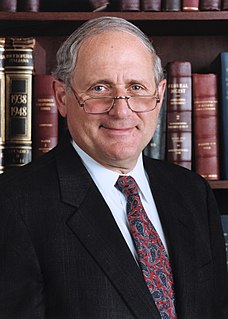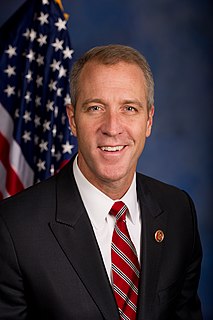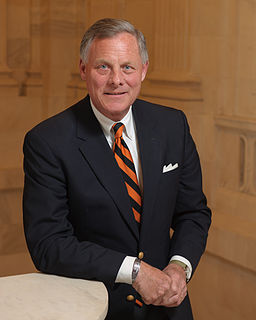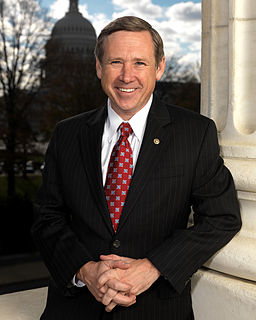A Quote by Edward Kennedy
We cannot simply speak out against an escalation of troops in Iraq, we must act to prevent it... There can be no doubt that the Constitution gives Congress the authority to decide whether to fund military action, and Congress can demand a justification from the president for such action before it appropriates the funds to carry it out.
Related Quotes
With 450,000 U. S. troops now in Vietnam, it is time that Congress decided whether or not to declare a state of war exists with North Vietnam. Previous congressional resolutions of support provide only limited authority. Although Congress may decide that the previously approved resolution on Vietnam given President Johnson is sufficient, the issue of a declaration of war should at least be put before the Congress for decision.
Congress has created and funded a huge peacetime military that has substantial abilities to wage offensive operations, and it has not placed restrictions on the use of that military or the funds to support it, because it would rather let the president take the political risks in deciding on war. If Congress wanted to play a role in restricting war, it could - it simply does not want to. But we should not mistake a failure of political will for a violation of the Constitution.
The president does not have power under the Constitution to unilaterally authorize a military attack in a situation that does not involve stopping an actual or imminent threat to the nation. As commander in chief, the president does have a duty to protect and defend the United States. In instances of self-defense, the president would be within his constitutional authority to act before advising Congress or seeking its consent.
Literally minutes before the Senate cast its vote, the administration sought to add the words 'in the United States and' after 'appropriate force' in the agreed-upon text. This last-minute change would have given the president broad authority to exercise expansive powers not just overseas-where we all understood he wanted authority to act-but right here in the United States, potentially against American citizens. I could see no justification for Congress to accede to this extraordinary request for additional authority. I refused.
The latest developments in Iraq are deeply troubling, but as the United States considers military and diplomatic responses to the actions of the Islamic State in Iraq and Syria (ISIS) action, we should be clear that U.S. troops on the ground cannot go a million miles near a sectarian civil war-it's simply not an option.
No power but Congress can declare war; but what is the value of this constitutional provision, if the President of his own authority may make such military movements as must bring on war? ... [T]hese remarks originate purely in a desire to maintain the powers of government as they are established by the Constitution between the different departments, and hope that, whether we have conquests or no conquests, war or no war, peace or no peace, we shall yet preserve, in its integrity and strength, the Constitution of the United States.
There is the possibility that these troops will be used against us if we are victorious. There is also the possibility that in fact the South Africans are there at the invitation of Britain, because Britain is hesitating to remove them. Hence there is a need for us to combine forces and demand through all political platforms, through all media, the withdrawal of South African troops and action, definite action, by Britain to get those South African troops out.
[Vladimir] Putin's Russia is only indirectly concerned with the conflict between Armenia and Azerbaijan as a means of maintaining its sphere of influence. I doubt that Russia will meddle. Moreover, I'm quite sure that Ilham Aliyev won't decide to carry out any serious action - it's not in his interest. He's learned his lesson very well - threaten to take action but never act on such words.

































